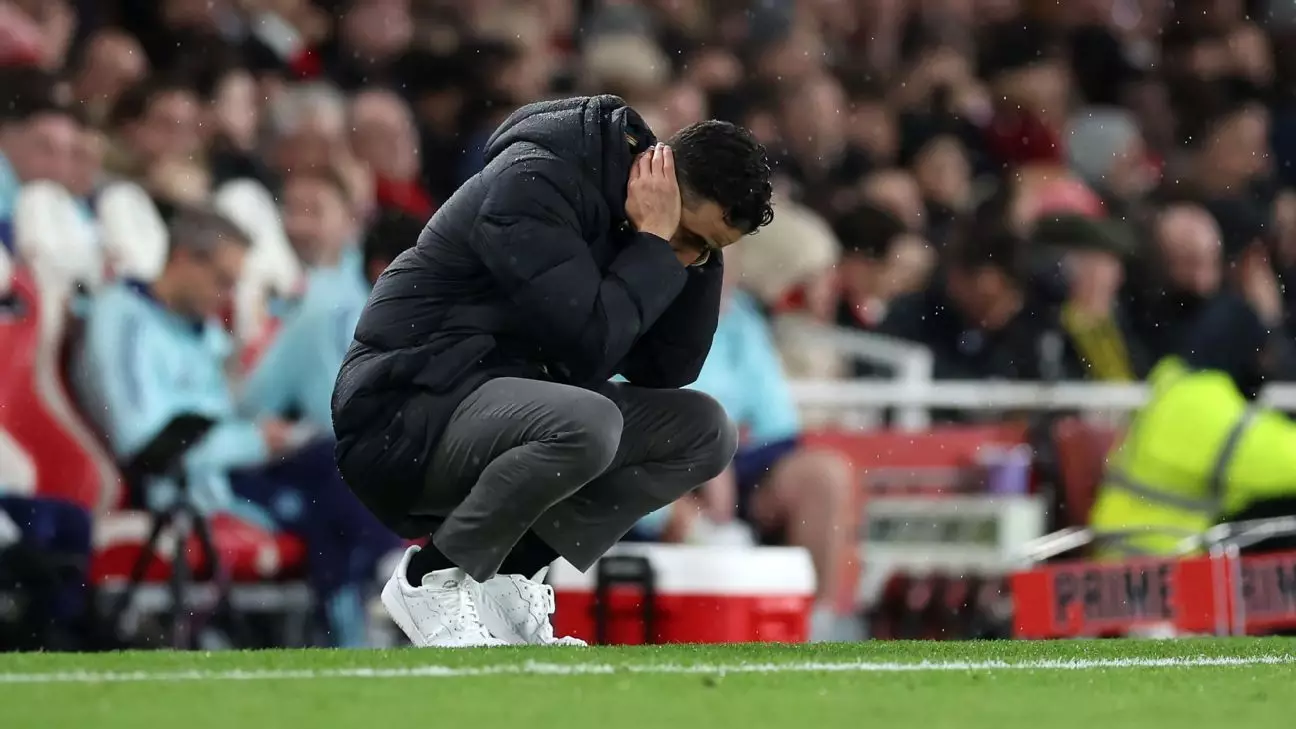Ruben Amorim’s tenure as the head coach of Manchester United has encountered its first significant hurdle following a disappointing 2-0 defeat to Arsenal. This loss marks a tough moment for Amorim, who is still in the early phases of his managerial career at such a high-profile club. Recognizing the formidable nature of his opponents—Arsenal, a consistent contender for the Premier League title over recent seasons—Amorim declared the result unsatisfactory, yet hinted that it was not entirely unforeseen considering the context of their rivalry. This perspective underscores the inherent pressure in managing a storied club like Manchester United, where fan expectations often clash with the reality of team development.
In the wake of this setback, Amorim emphasized the importance of managing expectations effectively. “It was a bad result, but amidst a very competitive league, each match can significantly alter the standing and perception of our team,” he stated in a press briefing. His awareness of the shifting dynamics in football illustrates a sophisticated understanding of the sport, where consistency is key, yet elusive. The pressure to deliver immediate results often overshadows the long-term vision necessary for rebuilding a team—an essential focus if United is to maintain a competitive edge.
With important fixtures ahead, including a home match against Nottingham Forest and a Europa League clash with Viktoria Plzen, Amorim finds himself at a critical juncture. His comments reveal an intention to remain focused and composed, which is essential when transitioning a team and instilling a new playing philosophy. The intensity of the upcoming Manchester derby against Pep Guardiola’s City adds another layer of complexity, and Amorim’s ability to navigate these challenges will be crucial in shaping his legacy with the club.
A notable aspect of Amorim’s early managerial decisions has been his willingness to experiment with team selection. For instance, he opted to bench key players like Marcus Rashford and Amad Diallo, decisions that were somewhat surprising given their recent strong performances. This strategy speaks to the broader tactical adjustments he is attempting to implement during his short tenure, as he seeks to build a cohesive unit capable of challenging for higher honors.
Amorim’s comments regarding managing player fitness further exemplify his commitment to responsible squad management. With players returning from injury and a rigorous schedule ahead, he recognizes the importance of balancing training loads with match readiness. His insights reflect a growing understanding of the unique challenges that come with leading a team in one of the most competitive leagues in the world.
As Ruben Amorim embarks on this challenging journey with Manchester United, he is acutely aware of the need for patience, resilience, and consistency. While his first loss may feel daunting, it serves as a critical learning experience as he navigates the complexities of restoring the club’s former glory. By managing expectations and fostering a solid team ethos, he lays the groundwork for what could potentially be a bright future in this iconic role. With time and strategic foresight, Amorim hopes to transform this period of turbulence into a platform for long-term success.

